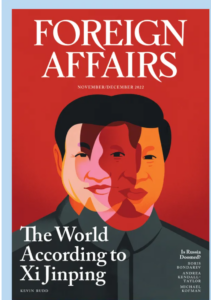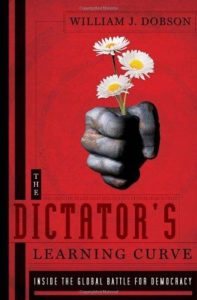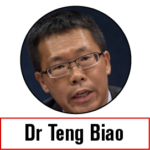 Chinese protests against zero-COVID measures were unlikely to pose a direct threat to the regime, but they raise questions about how Chinese leader Xi Jinping’s second decade in power will play out, says Ian Johnson, the Stephen A. Schwarzman Senior Fellow for China Studies at the Council on Foreign Relations.
Chinese protests against zero-COVID measures were unlikely to pose a direct threat to the regime, but they raise questions about how Chinese leader Xi Jinping’s second decade in power will play out, says Ian Johnson, the Stephen A. Schwarzman Senior Fellow for China Studies at the Council on Foreign Relations.
Just last month, Xi seemed poised to rule unchallenged for years to come, he writes for Foreign Affairs. But his frittering away of his first decade in power on control measures instead of forward-looking reforms means that China’s problems have become tangible for ordinary people. This is the real meaning of the COVID protests: they are not simply cries for personal freedom but signal the start of a more turbulent era in Chinese politics.
The recent protests undermine illusions about autocratic efficiency, says a leading French analyst. In the Western world, where self-criticism is a way of life, we once again acquiesced to an old lie: Dictatorships are more efficient than democracies, Alain Frachon writes for Le Monde.
“I don’t expect to see Xi Jinping in power in five years,” says Freedom House president Michael Abramowitz. “China isn’t suddenly going to turn into a democracy, but we shouldn’t underestimate the power of dissent,” he tells the NYT’s Peter Baker.
 But China has mastered authoritarian learning, says Srdja Popovic, one of the founders of the Serbian student movement Otpor! and the Center for Applied Nonviolent Action and Strategies (CANVAS). If you read Will Dobson’s book, “The Dictator’s Learning Curve,” you’ll see how some regimes learn and some don’t learn, he tells GRID’s Joshua Keating:
But China has mastered authoritarian learning, says Srdja Popovic, one of the founders of the Serbian student movement Otpor! and the Center for Applied Nonviolent Action and Strategies (CANVAS). If you read Will Dobson’s book, “The Dictator’s Learning Curve,” you’ll see how some regimes learn and some don’t learn, he tells GRID’s Joshua Keating:
The masters of learning are China. They learned from the Arab Spring, and they’re continuing to learn, and they’re learning in the prevention direction. Less and less authoritarians want to use brute force. It’s not because they have a personal problem with killing people and detaining people. It’s because for the last 10 or 15 years, it is authoritarian soft power that won them a lot of victories.
The renowned Chinese artist and dissident Ai Weiwei is staging an art performance at London’s Hyde Park this Saturday (10 December 2022), signing blank sheets of A4 paper with invisible UV ink and distributing them free from 2-4 pm at Speakers’ Corner, Wallpaper.com notes. The event is his way of recognizing Human Rights Day, which marks the anniversary of the drafting of the University Declaration of Human Rights in 1948.
@aiww is signing blank sheets of A4 paper with invisible UV ink & distributing them free from 2-4 pm at London’s Hyde Park this Saturday 10 Dec to mark #HumanRightsDay #Ai4paper #A4paper #Aiweiwei #freedomofspeech #chinaprotest #covidprotest https://t.co/mBrhAaURK2
— Democracy Digest (@demdigest) December 9, 2022
As Xi begins his third term, the Chinese Communist Party uses technology and other means to impose social control, stifle dissent, and “sinicize” ethnic minorities and religious groups, the Congressional-Executive Commission on China adds:
- The PRC’s international ambitions have also evolved, from a country seeking global acceptance to one muscularly asserting itself globally and working to redefine international norms on terms favorable to its authoritarian governance. ….
- While some countries seek to expand the protection of fundamental human rights law, authoritarian governments increasingly advance alternative models of governance that aim to discredit fundamental freedoms.

Credit: RFA
To help guide the Commission in its continuing efforts to assess China’s record on human rights and rule of law, this hearing will hear testimony on the changes in China’s domestic situation, the international legal landscape, and Chinese Communist Party efforts to shape both.
CECC at 20: Two Decades of Human Rights Abuse and Defense in China: Tuesday, December 13, 2022. 10:00 a.m.-12:00 p.m., 106 Dirksen Senate Office Building
Witnesses:
Teng Biao, Hauser Human Rights Scholar, Hunter College & Pozen Visiting Professor, University of Chicago [and 2008 National Endowment for Democracy awardee].
Rana Siu Inboden, Senior Fellow, Robert S. Strauss Center for International Security and Law, University of Texas at Austin
Sophie Richardson, China Director, Human Rights Watch
Hearing livestream can be viewed on the Commission’s YouTube channel.







